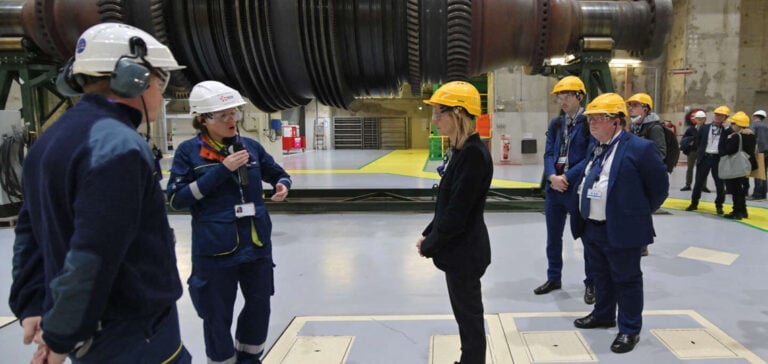As part of its ongoing efforts to strengthen nuclear safety, France is planning a major institutional reorganization. A recently unveiled draft bill proposes merging the two main regulatory bodies into a single authority, to be known as the “Nuclear Safety and Radiation Protection Authority”. This initiative is part of a broader drive to revitalize the country’s nuclear industry, with the aim of meeting the challenges of safety and efficiency.
Structure and objectives of the new authority
In concrete terms, this new organization will absorb the functions of the French Nuclear Safety Authority (ASN) and the French Institute for Radiation Protection and Nuclear Safety (IRSN). In addition, this change aims to establish an independent administrative authority, in line with the highest standards of legal protection and impartiality. Integrating the activities of the two current institutions should simplify assessment, authorization and control procedures, ensuring a faster, more coordinated response to the sector’s requirements.
Implications of the merger for the regulatory process
The government emphasizes the need for a single entity to efficiently manage the appraisal, appraisal and authorization processes. The proposed structure promises to eliminate organizational duplication and promote smoother communication between the various links in the safety chain. Emphasis is also placed on aligning priorities and reinforcing the dissemination of crucial information.
Reform challenges and concerns
However, the suggested reform is not without controversy. Trade unions and consumer associations are expressing concern about the potential impact on the independence and transparency of expertise in this field. A central point of the reform, article 4, stipulates a clear distinction between the expertise and decision-making processes, leaving it to the future authority to define the contours of this separation.
Talent management and resource anticipation
The project also anticipates adjustments in human resources management and the search for talent. The future organization will be able to recruit under a variety of statutes, including private law, to attract and retain specialized skills. In addition, a report scheduled for mid-2024 will assess the resources needed to meet the ambitions of this new structure in a “new nuclear context”.
By paving the way for an overhaul of nuclear safety governance, this bill aims to adapt the French regulatory system to contemporary challenges. The integration of the two existing authorities reflects a desire for consolidation and efficiency, while raising questions about the balance between institutional agility and democratic transparency. This is a potentially decisive step for the future of the French nuclear industry, at the dawn of an era of energy renewal.






















